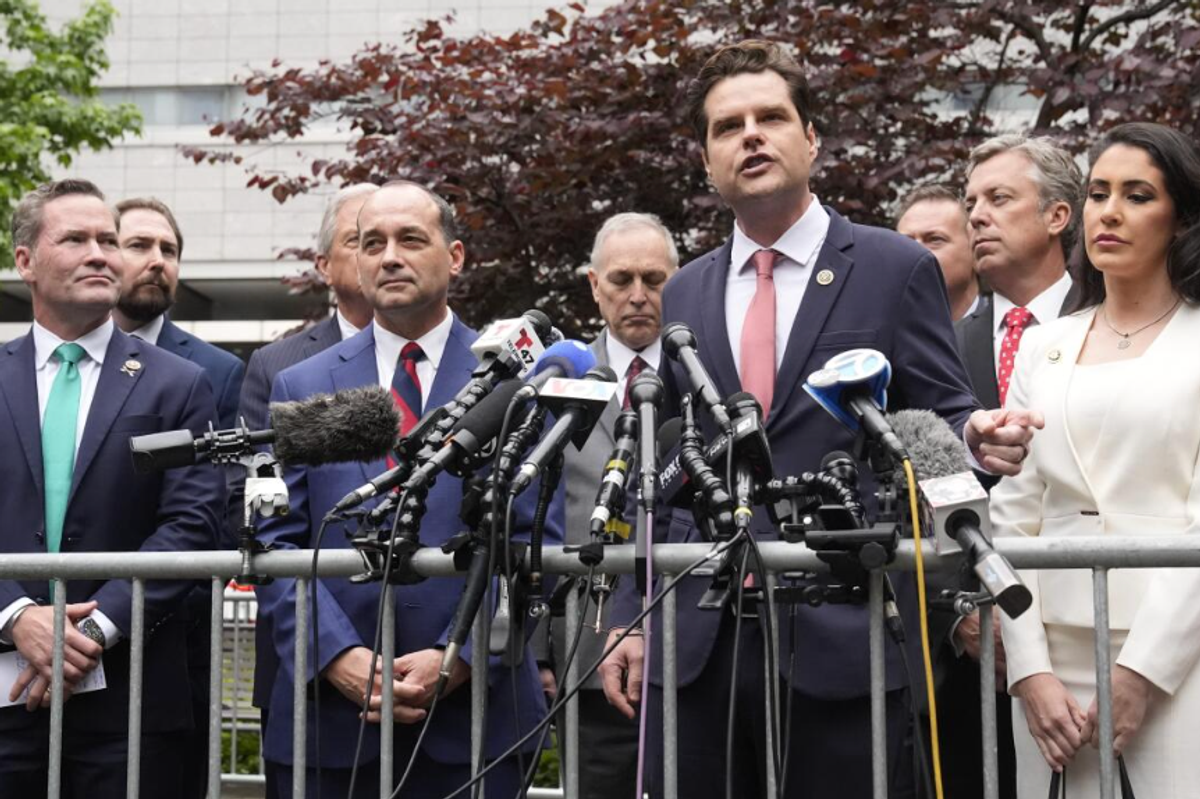
WASHINGTON — Clarifying moments are rare in politics. They are the times when previously muddled issues are suddenly cast into sharp relief and citizens are given a look behind the curtains of spin and obfuscation.
Over the last week, Americans were blessed with three separate clarifying moments.
Representative Paul Ryan made absolutely clear that he is not now and never was interested in deficit reduction. After a couple of years of being lauded by deficit hawks as the man prepared to make hard choices, he proposed a budget that would not end deficits until 2040, but would cut taxes by $4.6 trillion over a decade while also extending all of the Bush tax cuts, adding another $5.4 trillion to the deficit. Ryan would increase military expenditures, and then eviscerate the rest of the federal government.
Oh yes, Ryan claims he’d make up for the losses from his new tax cuts with “tax reform,” but offered not a single detail. A “plan” with a hole this big is not a plan at all. Ryan’s main interest is in cutting the top income tax rate to 25 percent from the current 35 percent. His message: solving the deficit problem isnít nearly as important as (1) continuing and expanding benefits for the wealthy, and (2) disabling the federal government.
Robert Greenstein, president of the progressive Center on Budget and Policy Priorities, is tough on deficits, careful in his use of numbers, and measured in his choice of words. These traits make his analysis of Ryan’s proposal all the more instructive.
It would likely produce the largest redistribution of income from the bottom to the top in modern U.S. history and likely increase poverty and inequality more than any other budget in recent times (and possibly in the nationís history), Greenstein said. ìSpecifically, the Ryan budget would impose extraordinary cuts in programs that serve as a lifeline for our nationís poorest and most vulnerable citizens, and over time would cause tens of millions of Americans to lose their health insurance or become underinsured
Thanks to Ryan, we now know that this election is not about deficits at all. It is about whether we will respond to growing inequalities of wealth and income by creating even larger inequalities of wealth and income.
Last week also saw the nation focus seriously on the “Stand Your Ground” laws that the National Rifle Association has pushed through in state after state. These statutes came to wide attention because of the tragic killing of Trayvon Martin, an unarmed black teenager.
George Zimmerman, the man who pulled the trigger, was not even under investigation until there was a national outcry because under Florida’s version of the stand your ground law, a citizen has a right to use ìforce, including deadly force, if he or she reasonably believes it is necessary to do so to prevent death or great bodily harm to himself or herself or another or to prevent the commission of a forcible felony.
These laws perfectly reflect the NRA’s utopia. No longer will we count on law enforcement to preserve the peace. Instead, we will build a society where all citizens are armed and encouraged to take the law into their own hands. If you feel threatened, just shoot.
Since when did conservatives start believing that laws should be based on ëfeelingsî and subjective judgments? What kind of civilization does this create? Surely this moment should inspire the peaceable majority to challenge the entire gun lobby worldview — and that most certainly includes the legions of timid Democrats who have been cowed by the NRA.
There was, finally, that toy metaphor from Eric Fehrnstrom, a top aide to Mitt Romney. Asked on CNN if the primary campaign had forced Romney “to tack so far to the right it would hurt him with moderate voters in the general election,” Fehrnstrom replied that “everything changes” after the primaries. ìItís almost like an Etch a Sketch, he added, ìyou can kind of shake it up, and we start all over again.
The context matters because Romney later said Fehrnstrom was only talking about post-primary changes that would be made ìorganizationally,î a claim that is plainly untrue. Ironically, the semi-denial only reinforced the lesson Fehrnstrom taught: To win, Romney is willing to change not only his own positions but also reality itself.
Conservatives will need an exceptionally powerful Etch a Sketch to wipe the nation’s memory clean of the education it received during the 2012 campaign’s most enlightening week so far.
E.J. Dionne’s email address is ejdionne(at)washpost.com.
(c) 2012, Washington Post Writers Group


